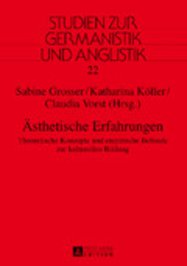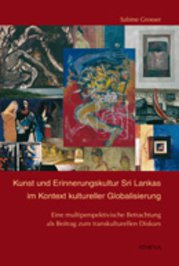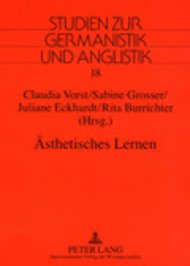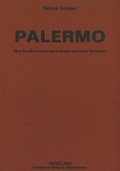Publications and Speeches
Aesthetic Experiences
Theoretical concepts and empirical results on cultural education
Within the recent discussion on aesthetic and cultural education, the authors from different cultural science disciplines explore the question what aesthetic experiences are. While they work interdisciplinarily and transforming aesthetically, they explain how something as elusive and subjective can be captured empirically and be initiated and conveyed by educational institutions. During the project, participants leave the usual place of learning, translate material in language and writing, texts into films or literature into dance or are encouraged to question their own perceptual patterns.
Art and Culture of Memory of Sri Lanka in the Context of Globalisation
“For the laypersons under the readers that not only want to travel to Sri Lanka but also want to understand and get to know foreign cultures as a part of the economic, social and religious world affairs, this book is a great recommendation, as for the social and art sciences. “
Gabriele Klempert, Kunstbuch.Anzeiger.de (August 2011)
Aesthetic Learning
Didactical basic questions and practice-oriented concepts in the interdisciplinary context of teacher training and school
In times of standardisation and the reduction in teaching content to examinable competencies, the demand for aesthetic education inherits an unrealistic idea. But it also cannot be overlooked that aesthetic learning is becoming more interesting for scientific discussion and didactical research. Also, the publishers and authors of this book plead for a strengthened aesthetic sensibilisation – from the view of very different subjects as visual arts, German, music, sports, textile design and theology. The articles provide theoretical fundamentals on the importance and function of aesthetic learning in various disciplines and possible topics that could be used for the implementation of aesthetic concepts in university and schools.
Palermo
An approach to his work and its reception
The works of Palermo seem – as portrayed by introductory reception history analysis – to have been withdrawn from a linguistic fixation. A possible linguistic approach to this hermeneutical work was developed using the example of the analysis “Wandmalerei” of the Hamburger Art Association (1973/1992). Coming from the term “Unschärfebeziehung” (uncertainty relation), which is transferred from the quantum theory to the relation between the artwork and the observer, the author can show a linguistic approach to the work of Palermo, which takes the impossibility of a clear identification as a starting point. The results of this distribution and reception analysis provide a possibility to review and categorise this analysis from various aspects. The analysis of the work and the reception history are therefore seen as fundamentally different but mutually complementing areas.




